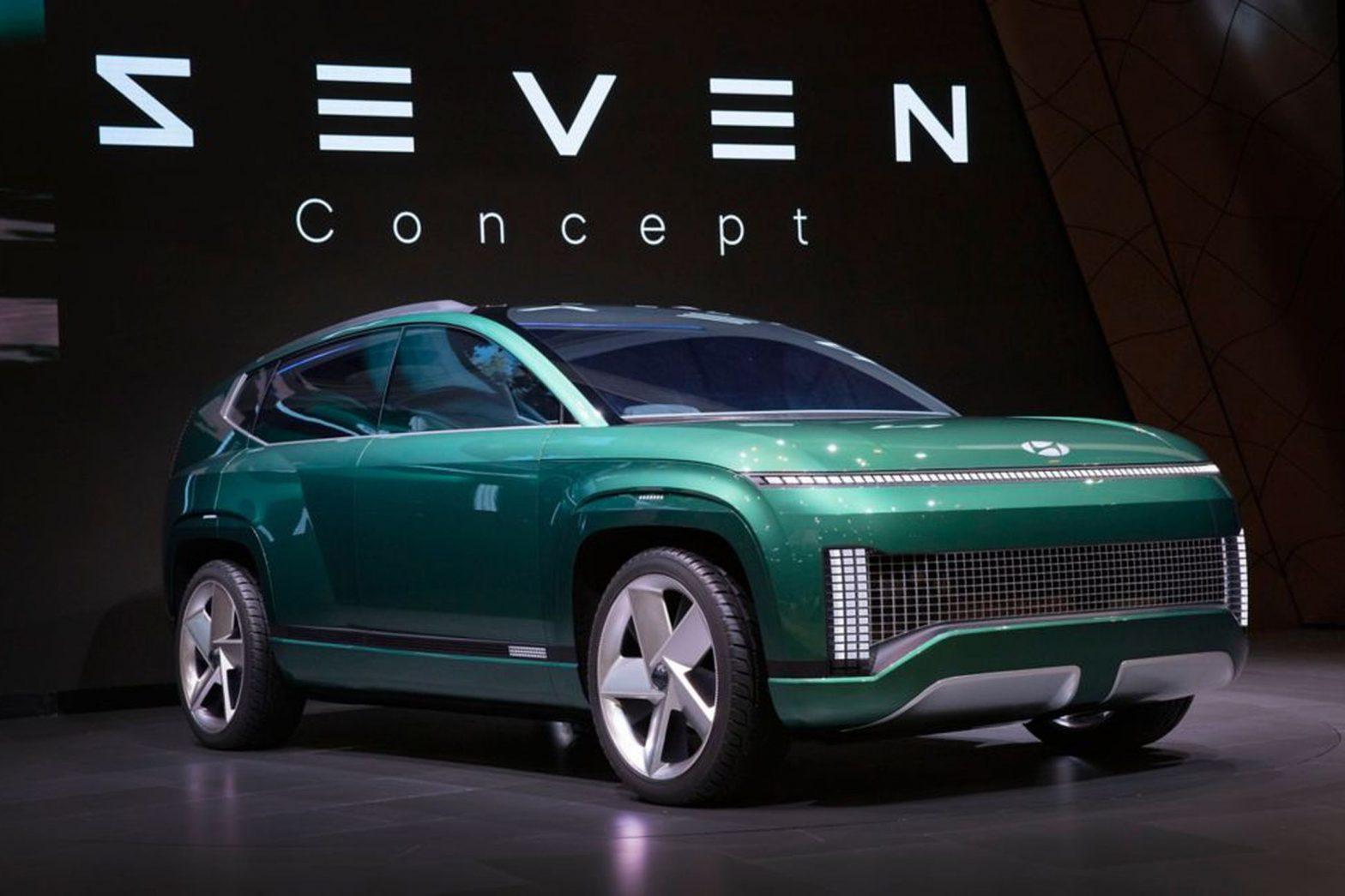/
While other automakers get cold feet, the South Korean automaker remains steadfast on EV rollout.
Share this story
:format(webp)/cdn.vox-cdn.com/uploads/chorus_asset/file/25593028/hyundai_seven_auto_mobility_la_03.jpeg)
Hyundai’s next electric vehicle for the US will be the Ioniq 9, a beefy, three-row SUV that will be manufactured at the company’s factory in Georgia, Hyundai executives announced during an investor day conference this week.
It’s a sign that while other automakers continue to second-guess their EV investments amid slowing demand, the South Korean automaker is intent on growing its share of the plug-in market by introducing new vehicles in popular segments.
The Ioniq 9 will be based on the Concept Seven, which was first revealed in 2021. At that time, Hyundai said the concept would be built on the automaker’s Electric-Global Modular Platform (E-GMP), which also underpins the Ioniq 5, Ioniq 6, Kia EV6, Kia EV9, and Genesis GV60.
The Ioniq 9 will be built at the same Ellabel, GA-based Metaplant where the company soon will start producing the Ioniq 5. (Assembling EVs in the US, as opposed to South Korea, will help qualify for the federal EV tax credit of $7,500.)
During the conference, Hyundai Motor President and CEO Jae Hoon Chang said a production version of the Ioniq 9 will be shown off at the Los Angeles Auto Show later this year, according to InsideEVs.
Hyundai also said it would increase its share of hybrids in its lineup, in an acknowledgement that US consumers these days are more inclined to buy them over a full EV. Hyundai says the North American market in particular is facing a shortage of hybrids, which it aims to correct.
The Concept Seven was advertised as capable of charging from 10 percent to 80 percent in about 20 minutes, with a range of “over 300 miles.” But during the investor day event, Hyundai executives would explore developing Extended Range Electric Vehicles, or EREVs, to provide even more range than that. Some EREVs, like the BMW i3 and Chevy Volt, use small gas engines to recharge the battery pack, but not operate the motors.
Hyundai executives theorized being able to produce EREVs with a range of over 900 km, or 560 miles, when fully charged, according to insideEVs.
The Seven was one of the biggest concepts we’ve seen from the South Korean automaker, with a wheelbase that stretches 10.5 feet, which is longer than the Cadillac Escalade. The extra-tall grille also puts this concept firmly in the “dangerously large” camp of vehicles that includes the Escalade and other oversized SUVs and trucks.
